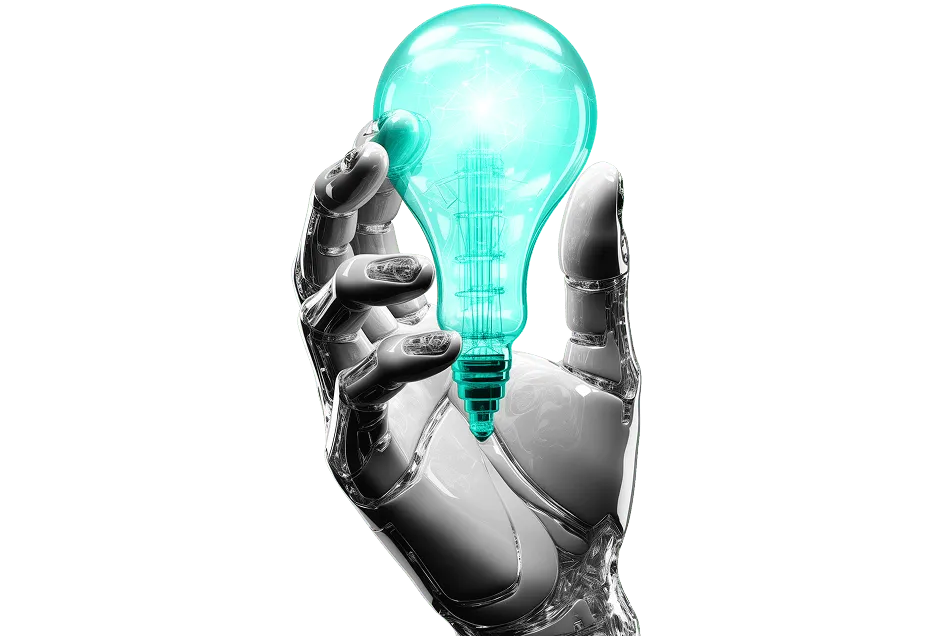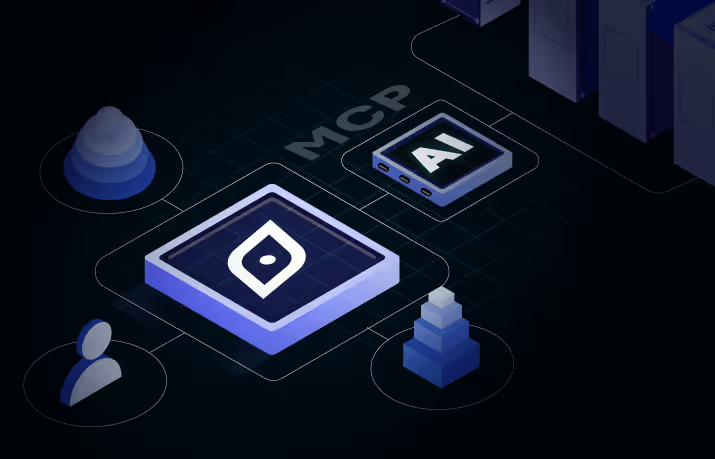Redefine Your Global Recruitment Strategy with AI Talent Intelligence Platform
LinkedIn Talent Insights says – 71% of global companies cite talent acquisition as a top business priority.
Traditional recruitment methods often fall short in addressing the evolved requirements of enterprise hiring. As a result, organizations grapple with delayed hiring, biases, and missed opportunities.
Embracing AI Talent Intelligence platforms is enhancing the quality of hires and addressing these critical issues effectively.
As competition for top talent intensifies, organizations face increasing challenges in their hiring efforts. In response, AI Talent Intelligence platforms emerge as game-changers.
These platforms revolutionize the way organizations identify, attract, and retain top talent by enhancing efficiency and reducing costs.
As competition for top talent intensifies, AI talent Intelligence platforms emerge as game-changers. It revolutionizes the way organizations identify, attract, and retain top talent by enhancing efficiency and reducing costs.
By leveraging advanced technologies such as machine learning, natural language processing, and predictive analytics, AI Talent Intelligence platforms offer significant advantages.
These platforms provide talent acquisition leaders with a competitive edge by enabling them to focus their time and resources on engaging with high-potential candidates.
Consequently, this allows them to build meaningful relationships rather than spending time on candidate sourcing, resume screening, and interview scheduling.
Leveraging the power of AI talent Intelligence platforms, organizations can unlock new levels of efficiency, effectiveness, and strategic insight in their quest to attract and retain top talent in today’s competitive landscape.
Talent acquisition leaders can not only speed up the hiring process but also ensure that they find the best-fit candidates who align with their organization’s values, culture, and business objectives.
How AI Talent Intelligence Platforms Fast-Track Global Talent Recruitment?
Global recruitment involves sourcing, evaluating, and hiring candidates from diverse geographical regions, each with unique job markets and candidate pools.
Traditional recruitment methods, which often rely on manual processes and limited data analysis, struggle to keep pace with these demands.
These methods can be time-consuming, prone to biases, and inefficient in handling large volumes of applications, leading to missed opportunities, higher recruitment costs, and prolonged hiring processes.
AI talent intelligence platforms address these challenges by providing deeper insights into candidate profiles and market trends, enhancing the efficiency and effectiveness of global recruitment efforts.
By scanning and analyzing vast amounts of unstructured data from multiple sources, AI talent intelligence platforms convert this information into actionable insights.
This process provides talent acquisition leaders with a clear, real-time view of market trends and global talent availability.
Additionally, it delivers resumes of the most qualified candidates based on business requirements, free from unconscious bias. As a result, it facilitates strategic decision-making effectively.
Also, the continuous learning capabilities of AI and ML models enable AI talent intelligence platforms to improve over time, ensuring ongoing enhancements in recruitment efficiency.
Scalable to handle large volumes of applications, AI talent intelligence platforms are ideal for organizations of all sizes, making the recruitment process more effective and competitive globally.
Here’s how -

Improved Candidate Screening
AI and ML algorithms swiftly and accurately dissect resumes to identify key skills, experiences, and qualifications, going beyond just the job title.
This enhances the initial screening process by ensuring that no relevant detail is overlooked, allowing recruiters to focus on the most promising candidates from the start.
Additionally, predictive analytics evaluate past performance data and other relevant metrics which further reduces the risk of hiring candidates with not much relevant experience in the required domain, eventually improving overall hiring quality.
Time and Cost Efficiency
By automating screening and ranking candidates by considering various data points, AI talent intelligence systems can reduce significant time needed for initial evaluations and hiring costs.
This allows talent acquisition leaders to allocate their resources and efforts more strategically and ensure better matches between the candidates and job requirements. This dual benefit of time savings and reduced turnover can translate into substantial cost efficiency for organizations.
Enhanced Candidate Engagement
Candidate engagement and experience can be enhanced through personalized communication. By automating interactions and providing timely updates, talent acquisition leaders can maintain a high level of engagement with the candidates throughout the recruitment process.
AI talent intelligence platforms further enhance this experience by handling initial candidate inquiries, freeing up recruiters to focus on more strategic tasks.
This personalized and responsive communication ensures a positive candidate experience and helps keep potential hires engaged and informed.
Strategic Insights and Analytics
With crucial strategic insights and analytics that are invaluable for informed decision-making, talent acquisition leaders can gain comprehensive analytics on talent market trends, competitive hiring practices, and candidate behaviors that enable organizations.
Predictive analytics help organizations anticipate future hiring needs, allowing them to align their recruitment strategies with long-term business goals.
This proactive approach to workforce planning ensures that the organization is always prepared to meet its talent needs.
Global Reach and Scalability
Operating in diverse markets, talent acquisition leaders need to have a global reach and scalability to get a clear vision of the talent hotspots.
With multilingual capabilities, AI Talent Intelligence platforms allow talent acquisition leaders to effectively engage with candidates across different regions and languages, ensuring a seamless recruitment process on a global scale.
Furthermore, AI solutions can easily scale to handle varying recruitment volumes, making them suitable for businesses at scale.
This flexibility ensures that the recruitment process remains efficient regardless of the organization’s goals or recruitment demands.
Compliance and Risk Management
Compliance and risk management are critical components of the recruitment process that AI systems address effectively.
AI talent intelligence platforms ensure that recruitment processes comply with local and international labor laws and regulations, thereby reducing legal risks.
Additionally, advanced encryption and security protocols protect sensitive candidate data, ensuring compliance with data protection regulations like GDPR.
This focus on regulatory compliance and data security safeguards the organization against potential legal and financial repercussions.
What do AI Talent Intelligence Platforms bring to the table?
By integrating AI into talent acquisition, companies can enhance the overall quality of their hires, improve retention rates, and ultimately drive organizational performance and growth.
This advanced approach to recruitment not only saves time and resources but also ensures that organizations are equipped with the right talent to meet their strategic goals.
Let’s delve deep into the features and functionalities of these AI-powered talent intelligence platforms, showcasing their pivotal role in modern talent acquisition strategies –

Skill Gap Analysis and Workforce Planning:
Comprehensive Skill Mapping:
By analyzing current employee skills and future job requirements, AI talent intelligence platforms can identify skill gaps within the organization. This information is crucial for workforce planning, training, and development initiatives.
Bias Reduction:
AI talent intelligence platforms help mitigate unconscious biases in the recruitment process by focusing on objective data rather than subjective judgments. This leads to a more diverse and inclusive hiring process, enhancing the overall quality of hires.
Predictive Analytics:
Predictive analytics provide insights into candidate behavior, job market trends, and hiring outcomes. Recruiters can use this information to make data-driven decisions, anticipate hiring needs, and develop more effective recruitment strategies.
Talent Pool Management:
AI talent intelligence platforms can create and manage extensive talent pools, allowing recruiters to maintain a pipeline of qualified candidates for future openings. This proactive approach reduces time-to-hire and ensures a steady supply of talent.
Candidate Intent Prediction:
AI talent intelligence platforms analyze candidate interactions and behaviors to predict their intent and likelihood of accepting job offers, and more likely to switch or look for a promotion/change. This insight helps recruiters prioritize candidates who are more likely to join the organization.
Competitor Talent Insights:
With deep insights and analysis into the talent strategies of competitors like location of hiring, skill sets required for a particular role, future skills, and talent acquisition leaders can benchmark their recruitment efforts and stay ahead in the talent market.
Global Recruitment – Redefined with AI-powered Talent Intelligence
Increased Efficiency
Automation of repetitive tasks such as scanning resumes beyond job titles, finding candidates that match the required domain expertise, and giving a real-time 360 view of global talent hotspots allows recruiters to focus on higher-value activities.
This increased efficiency leads to faster and more strategic hiring, reducing the time-to-fill positions.
Cost Savings
By minimizing the need for manual labor and improving the quality of hires, AI talent acquisition platforms can significantly lower recruitment costs.
The ability to quickly identify and engage top talent also reduces the costs associated with turnover and rehiring.
Improved Quality of Hires
Enhanced candidate matching and bias reduction lead to better hiring decisions. By identifying candidates who are the best fit for the job, and the company culture and have the most relevant skills, organizations can improve employee performance and retention rates.
Scalability
AI talent intelligence platforms can handle large volumes of applications and data, making them ideal for global recruitment efforts.
This scalability ensures that organizations can effectively manage recruitment across multiple regions and departments and gain a complete view of where the talent hotspots are along with an analysis is where their competitors are hiring.
Data-Driven Decision Making
Access to comprehensive analytics and insights into the hiring trends, talent hotspots, skillset people are looking for in a particular job role, and behavior of profiles (if the candidate is likely to switch), allows recruiters to make informed decisions.
Data-driven recruitment strategies lead to effective recruitment strategies which yield better outcomes and continuous improvement in hiring processes.
Popular Use Cases of AI Talent Intelligence Platform:
1. Rapid Identification of niche skills to create a workforce for the future
In industries (like tech and healthcare) that require a high volume of workers with specialized / niche technology skill sets, AI talent intelligence platforms excel at swiftly identifying suitable candidates by parsing through a large pool of candidates.
AI goes beyond resumes, deep diving into work experience, actual workloads, certifications and deliverables (past and current) to find the right candidate.
This analytics backed, AI talent acquisition strategy allows talent acquisition leaders to bridge skill and hierarchy gaps quickly, ensuring they recruit professionals uniquely qualified to make substantial contributions in their roles.
2. Compliance and Qualification Matching
In regulated industries like financial services, AI talent intelligence platforms provide an easy mechanism for ensuring hiring related regulatory compliance.
These platforms accurately verify if candidates possess the necessary eligibility, qualifications, certifications, and licenses required by regulatory bodies- real fast.
AI Talent Intelligence platforms reinforce the organizations’ compliance to internal and industry standards, fostering a more sustainable working and growth model.
3. Efficient Management of Seasonal Hiring
In retail and hospitality industries, AI talent intelligence platforms enable predicting and managing seasonal fluctuations by quickly identifying the trends and assisting organizations to plan for required suitable back fills, real fast.
With real-time data on candidate availability, experience, and skill alignment, talent acquisition leaders can quickly scale their workforce during peak seasons, enhancing operational agility and achieving operational excellence.
4. Optimization of Recruitment Cycle
For Talent Acquisition professionals, sourcing and screening bulk resumes and matching candidates with job criteria based on skills, experience, and qualifications can be exhaustive and time taking – leading to overlooking potentially qualified candidates.
AI fast tracks the screening process, identifying the best candidates (factoring in their actual deliverables and workloads) that fit the job role.
AI Talent Intelligence platforms allow talent acquisition leaders to allocate more time to strategic activities like candidate engagement, negotiations, cultural fit assessment, and talent development, speeding up the hiring process and leading to more successful hires.
5. Enhanced Academic and Research Talent Acquisition
AI talent intelligence platforms can also support organization’s university hiring initiatives by providing detailed insights into the university courses, student-faculty ratio, and notable professors.
With data supporting the candidates’ qualifications and scholarly contributions, talent acquisition can efficiently evaluate potential candidates and figure out reskilling opportunities for graduates to meet contemporary job requirements.
Additionally, organizations can find and attract leading experts and researchers in specialized fields, fostering a robust academic workforce that drives innovation and research excellence.
Conclusion
Integration of AI Talent Intelligence platforms can help talent acquisition leaders remain at the forefront of top talent concerning changing market dynamics. Also, ensuring effectively connecting the best talent with the best opportunities.
Hiring the right talent is the key to competitive advantage. And with AI Talent Intelligence platforms, talent acquisition leaders can gain precision, efficiency and deeper insights to mould their recruitment strategy.
With a 50% enhancement in candidate matching, these platforms are setting new standards in global recruitment. They are paving the way for a future where top talent seamlessly connects with the best opportunities.
AI talent intelligence platforms are revolutionizing global hiring by significantly improving candidate matching, increasing efficiency, and reducing costs. These advanced technologies provide valuable insights, allowing organizations to streamline recruitment processes, make more informed hiring decisions, and achieve their talent acquisition goals.
Embracing AI talent intelligence platforms in recruitment is now not just a trend; it is a strategic imperative for organizations seeking to stay ahead in the race for top talent.










.svg)

















.svg)





.svg)





.svg)
